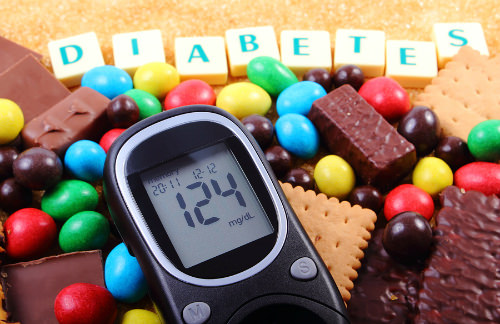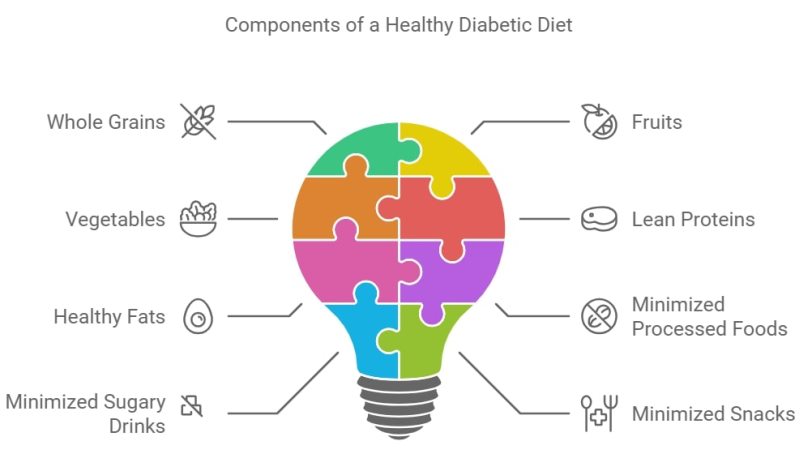7 Myths And Truths About Diabetes
Every day there are more people who have diabetes, a disease that suffer 442 million people worldwide according to the World Health Organization (WHO). It is therefore important that we stay informed about what is this disease and how to prevent it. But it is also keep in mind what are the myths and truths about this disease, to avoid falling into errors or panic in case of suffering.
Table of Contents
Myth 1: Diabetes is a Mild Disease
It is not the truth. Of course, you can have a normal life with diabetes if you control and maintain an adequate living with the disease, but the reality is that diabetes causes more deaths each year than breast cancer and AIDS together.
In fact, the WHO predicted that in 2030 it will be the seventh leading cause of death worldwide. It is a serious condition that must be treated and patients should accept it and adapt their lifestyle to the disease, but also there is no need to be alarmed, because it is treatable and controllable.
Myth 2: Only Obese People Have Type 2 Diabetes
Obesity is a risk factor for diabetes, but it is neither the only nor this means that all obese people suffering from diabetes. The truth is, other factors such as family history, age, smoking, and lack of physical activity can also increase your risk.
Thin people are not immune to diabetes, and people who maintain a healthy weight can still develop type 2 diabetes if other risk factors are present.
Similarly, type 1 diabetes is not caused by obesity and is generally believed to have genetic and environmental causes, though the exact triggers remain unclear.
Read Also: Is Prune Juice good for Diabetics?
Myth 3: Consuming Too Much Sugar Causes Diabetes
This myth is neither true nor false; it is a bit more complex. While a diet high in sugar can contribute to weight gain and increased body fat, which are risk factors for type 2 diabetes, eating sugar itself does not directly cause diabetes.
However, consuming sugary drinks and foods high in refined carbohydrates can increase your risk of developing type 2 diabetes over time. The real problem arises when high sugar intake leads to obesity or insulin resistance, which can set the stage for type 2 diabetes. Moderation and balanced diets are key to reducing this risk.
Usually, it is not advisable to take sugary soft drinks daily because its high sugar content increases the risk of diabetes by 22%, and control fruit juices, sweets and foods with refined carbohydrates.
Ideally, you have a healthy diet as recommended by most nutrition experts, based on intake of vitamins and minerals that the vegetables offer, proteins and good fats that you acquire in the fish, meat and dried fruit, moderate consumption of salt and sugar and fiber you get from whole grains.
Myth 4: People with Diabetes Can’t Eat Sweets
This is one of the most common myths. People with diabetes can enjoy sweets, but it needs to be done in moderation and within the context of a balanced meal plan.
The key to managing diabetes is portion control and carb counting. By carefully managing the amount of sugar and carbohydrates you consume, it is possible to include treats in your diet occasionally.
However, people with diabetes should work with their healthcare provider or dietitian to ensure that these foods fit into their daily plan without causing dangerous spikes in blood sugar levels.
Myth 5: Only Older People Get Type 2 Diabetes
Although type 2 diabetes is more common in older adults, the number of young adults, teens, and even children diagnosed with the condition is on the rise.
Lifestyle factors such as poor diet, lack of exercise, and sedentary behavior are contributing to the increased prevalence of type 2 diabetes among younger populations.
It’s crucial to recognize that type 2 diabetes can develop at any age, especially in people with risk factors like family history, obesity, or inactive lifestyles.
Myth 6: You Need Special Foods If You Have Diabetes
A diabetic diet doesn’t require expensive or specialized foods. The truth is that a healthy diet for people with diabetes is very similar to a balanced diet recommended for everyone. The focus should be on eating whole grains, fruits, vegetables, lean proteins, and healthy fats.
Processed foods, sugary drinks, and snacks should be minimized, but there is no need to buy foods specifically marketed for diabetes. In fact, some “diabetic-friendly” products are often higher in calories or unhealthy fats, which can be counterproductive.
Myth 7: You Can’t Exercise If You Have Diabetes
Regular physical activity is one of the best ways to manage diabetes. Some people mistakenly believe that exercising with diabetes is dangerous, but this is far from the truth. In fact, exercise helps improve insulin sensitivity and can help lower blood sugar levels.
However, it’s important to check with your doctor before starting any new exercise regimen and to monitor your blood sugar before and after workouts.
Staying active can improve overall health and aid in weight management, which is especially beneficial for individuals with type 2 diabetes.
Myth 8: I Won’t Get Diabetes Because Nobody in My Family has It
While family history is a risk factor, it is not the only one. Many people develop diabetes without any family history of the disease. Lifestyle factors, such as diet, physical activity, and weight, play a significant role in developing type 2 diabetes.
Additionally, other factors like age and ethnicity also increase your risk. So, even if no one in your family has had diabetes, it’s still essential to take preventive measures, especially as you get older or if other risk factors apply.
Myth 9: I Don’t Need to Worry Because I Have Borderline Diabetes
Many people are diagnosed with prediabetes, a condition where blood sugar levels are higher than normal, but not yet in the diabetic range.
Some mistakenly believe that borderline diabetes is not a serious condition, but the truth is, without lifestyle changes, prediabetes often progresses to type 2 diabetes.
By adopting healthier habits, such as eating a balanced diet, exercising regularly, and maintaining a healthy weight, it’s possible to prevent or delay the onset of diabetes.
Myth 10: Once My Blood Sugar Under Control, I Can Stop Taking Diabetes Medicines
Once someone with diabetes manages to get their blood sugar levels under control, they might think they no longer need medication. This is not true.
Diabetes is a chronic condition, and while lifestyle changes and medications can control it, they do not cure it. If you stop taking your medication, your blood sugar will likely rise again. Always consult your doctor before making any changes to your treatment plan.
Myth 11: Only Those Having Severe Diabetes Should Use Insulin
Many people with type 2 diabetes believe that only those with severe forms of the disease need to take insulin. While oral medications and lifestyle changes can be effective for many, some people with type 2 diabetes may need insulin to manage their blood sugar levels, especially as the disease progresses.
Type 1 diabetes always requires insulin because the body doesn’t produce any, but people with type 2 may need insulin at different stages.
Myth 12: Diabetic Women Cannot Safely Have Children
Having diabetes doesn’t mean you cannot have a healthy pregnancy. Women with diabetes can safely have children, but it does require careful planning and management.
Blood sugar levels should be controlled before conception and throughout pregnancy to avoid complications for both the mother and baby. Pre-pregnancy counseling and regular medical supervision are essential to ensure a safe pregnancy and delivery.
Conclusion
There are many misconceptions surrounding diabetes, and it’s important to understand the truth behind these myths to manage the condition effectively and avoid unnecessary fear or confusion.
With proper care, people with diabetes can live healthy, fulfilling lives, but it requires awareness, commitment, and ongoing management.



